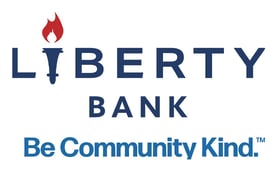

In a Nutshell: Liberty Bank is dedicated to serving low- and moderate-income individuals and families in Connecticut. It accomplishes that by offering consumers products aimed at building wealth through property ownership and small business creation. And the bank offers loans and lines of credit to help individuals raise their scores and qualify for more beneficial products. Liberty Bank ensures broader access to its services by providing financial education and outreach to the communities it serves.
Liberty Bank, the largest mutual bank in Connecticut, was founded in 1825, making it one of the oldest financial institutions in the United States today. It employs around 700 team members in 62 branch offices across the state and holds more than $7 billion in assets.
While Liberty Bank serves a wide range of consumer and commercial needs, it targets many of its offerings to low- and moderate-income individuals. Those consumers receive the same level of care and service, no matter their situation.

“We like to consider ourselves a kind of a one-stop shop for all customer financial needs,” said Glenn Davis, First Vice President, Community Development/CRA Officer at Liberty Bank. “I think what distinguishes Liberty from all the others is that we pride ourselves on delivering an exceptional banking experience in all of our interactions — not just with our branch banking experiences but just across the board.”
For nine consecutive years, Liberty has been named a top workplace in Connecticut. That recognition reflects its commitment to provide robust service and a high level of community involvement. A significant part of that involvement is providing the products and resources necessary for low- and moderate-income individuals and households to improve their financial standing.
“Liberty Bank received an outstanding CRA rating in its last examination,” Davis said. “That is evidence of our responsiveness and commitment to delivering services and products to meet the credit needs of everyone within our assessment area.”
Programs Aim to Build Wealth at Home and at Work
One way Liberty Bank helps its customers build wealth is through its Small Business Academy. It is designed for entrepreneurs who have been in business for three to five years but have experienced difficulty growing their brands.
Participants attend a series of 10 sessions that teach them about running and operating a small business. After they complete the program, Liberty Bank provides them with a $5,000 business line of credit to give them some financial latitude and cover new investments in their businesses.

“That’s something that we do primarily in our low- and moderate-income communities,” Davis said. “But any entrepreneur in our footprint is eligible.”
The Good Neighbor program is another wealth-building opportunity. Liberty Bank designed it to facilitate homeownership, a primary means of building intergenerational wealth in low-income communities.
Mortgages obtained through the Good Neighbor program offer reduced prices and rates with lower credit-score requirements for borrowers. Liberty Bank also enhances that program with down-payment assistance, which helps individuals and families with little savings afford homes of their own.
That allows them to build equity in their properties, which they can borrow against in an emergency. And since mortgages are often cheaper than rent, homeowners can even put the difference into savings, which further stabilizes their financial futures. Another advantage that saves people money when buying a home is Liberty Bank’s practice of paying for the borrower’s mortgage insurance.
Products to Help Consumers Raise Their Credit Scores
A key aspect of economic mobility is the availability of consumer credit. For lenders, a low credit score indicates a risky loan or line of credit. They typically offer higher rates to applicants to compensate for that risk. As a result, more of the consumer’s money goes toward paying interest, preventing them from boosting their savings. That situation can also prevent them from paying off balances quickly, which holds their scores down and prevents them from qualifying for better interest rates.
That’s why Liberty Bank offers a secured credit-builder loan for consumers with low credit scores. Instead of receiving money upfront, as with a standard loan, the funds are set aside, and the borrower makes payments on the credit-builder loan. By making timely payments, borrowers can boost their credit scores, and when they finish, Liberty Bank disburses the funds.
“If something goes wrong during the term of that credit facility, if they find that they can’t repay the loan, we will close out the account and refund them the money plus interest and never report any derogatory marks to a credit bureau,” Davis said. “The goal is to help them build a good credit history with the bank.”
Another credit-building option is a secured credit card. The account holder secures the line of credit with an initial deposit, which sets their credit limit. As with the secured loan, spending with the card and then paying back the balance can help consumers improve their credit scores.
Finally, Liberty offers an Individual Development Account for low-income families. Whenever they deposit funds, one of Liberty’s partner nonprofit organizations will match the amount. That incentivizes people to add money to their savings accounts, so it’s there in times of need.
“A major car repair could derail their financial status,” Davis said. “But they can make an emergency withdrawal; that’s an allowable withdrawal condition. These steps are intended to help low- and moderate-income individuals without some level of financial stability and economic security.”
Financial Education Delivers Knowledge for All Ages
Of course, financial products won’t do consumers any good unless they understand how to use them wisely. That’s why Liberty Bank offers financial education and literacy resources to customers and communities.
“We do a lot of financial literacy workshops,” Davis said. “Going back to our CRA exit valuation, we received an outstanding score in the services area. We find nonprofits in the community and deliver financial literacy, financial education, discuss credit, show them how to budget, and teach them how to save.”

Liberty Bank also hosts an online platform to teach middle and high school students about financial literacy. The institution also conducts in-person outreach at area schools. One aspect of that is its Credit for Life reality fairs, which provide hands-on experience with budgeting, credit, insurance, and all other aspects of adult financial life.
The bank aims to help young people avoid financial pitfalls and start their adult lives on strong financial foundations by providing that knowledge well before they graduate and enter the workforce.
“Those are ways that we’re trying to build financial literacy and sophistication with our young people,” Davis said. “When they’re young, they don’t understand money and choices. They may think they’re going to buy a big mansion and a nice car, and it’s not always in the cards for everybody. So it’s good to have that dose of reality.”
Closing the Wealth Gap by Meeting Community Needs
About one-third of the population in Liberty Bank’s service area includes low- to moderate-income individuals, according to census data. That challenge represents an opportunity for Liberty Bank to deliver more products and educational resources that people can use to improve their financial situations.
“We try to meet that customer need,” Davis said. “So when a third of our assessment area is low- and moderate-income tracts, our outstanding CRA rating shows that we are very committed to meeting the credit needs of that community.”
As a community institution, Liberty Bank is owned by its members, not shareholders. And since the institution doesn’t have to worry about meeting shareholder expectations in terms of dividends, it can focus entirely on returning value to customers and their communities.
That commitment extends not just to current customers but to future generations, as well. Financial education and homeownership are knowledge and wealth that can be passed down, helping to ensure future generations won’t face the same financial struggles and pitfalls.
“We have a continued focus and emphasis on diversity, equity and inclusion, and that includes the development of our overall strategic focus,” Davis said. “We’re focused on how we deal with outreach and our customers.”
Advertiser Disclosure
BadCredit.org is a free online resource that offers valuable content and comparison services to users. To keep this resource 100% free for users, we receive advertising compensation from the financial products listed on this page. Along with key review factors, this compensation may impact how and where products appear on the page (including, for example, the order in which they appear). BadCredit.org does not include listings for all financial products.
Our Editorial Review Policy
Our site is committed to publishing independent, accurate content guided by strict editorial guidelines. Before articles and reviews are published on our site, they undergo a thorough review process performed by a team of independent editors and subject-matter experts to ensure the content’s accuracy, timeliness, and impartiality. Our editorial team is separate and independent of our site’s advertisers, and the opinions they express on our site are their own. To read more about our team members and their editorial backgrounds, please visit our site’s About page.
